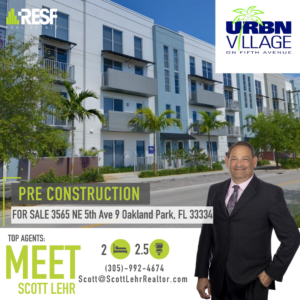An Introduction to Hard Money Loans

Understanding how to finance real estate deals is an
essential part of any real estate investor’s education. There are many
financing options available to investors who want to buy rental properties;
however, savvy investors know that utilizing leverage via the correct financing
vehicle is key to increasing return on investment.
What is Leverage?
Leverage is the money borrowed to finance the purchase of an
investment property. In other words, someone else’s money is being used to
maximize (or leverage) your ability to buy investment properties while using less
of your own money.
Conforming Mortgages
– Leverage to Purchase a Primary Residence Versus Rental Properties
If you have a mortgage on your home, then you used leverage
to purchase it. Typically, conforming mortgage lenders will lend up to 80% of a
property’s purchase price thus
requiring a 20% down payment from the buyer. A
conforming mortgage is the best way to purchase a primary residence when
the buyer has good credit, income history, and has time to go through the
lengthy approval process required by a bank.
A conforming
mortgage is not
the best financing vehicle to use when purchasing a rental property for a
variety of reasons. Conforming mortgages will have higher interest rates
(5-7%) on loans for rental properties, may require larger down payments, and
have different approval requirements than owner-occupied properties. Furthermore,
you cannot use a conventional mortgage to purchase a property with deferred
maintenance because the underwriter will not approve the loan. Even then, the
approval process will be onerous. Conforming mortgage lenders will require proof that you can repay them and will
evaluate your credit score, your income, and your debt to income (DTI) ratio
before approving the loan.
Hard Money Loans Maximize Leverage When
Purchasing Rental Properties
A hard money loan is a way
to secure financing for a rental property without using conventional mortgage
lenders such as banks or credit unions. Hard money loans are funded
by private investors (or a fund of investors). They are short-term, asset-based loans for
non-owner occupied (rental) properties. This means that the rental property is
used to secure the loan.
Real estate
investors typically buy properties with deferred maintenance. Therefore, the
purchase price is lower than the after repair value (ARV) of the property. The
ARV is the estimated value of a property after all necessary repairs or major
renovations have been finished and is based on sales of comparable nearby
properties.
In contrast to conforming
mortgage lenders, hard money lenders will lend
up to 65 – 75% of the property’s ARV rather
than 80% of the purchase price. This
ability to maximize leverage is the reason savvy real estate investors
prefer to obtain hard money loans when purchasing investment properties. Table 1 provides a very basic
illustration of the difference in leverage between conforming mortgages and
hard money loans.
Table 1:
Comparison of Conforming and Hard Money Loans
Table 1 shows that a conforming mortgage lender will
only lend $60,000, which is 80% of the $75,000 purchase price. The borrower
(real estate investor) will need to put down $15,000 to purchase the property.
Then, he or she will need to address the deferred maintenance (make
repairs). If $15,000 is needed for
repairs to the property, then the investor will be out of pocket an additional
$15,000. All in, the real estate investor will have $30,000 of his or her money in the deal when financing the property
with a conforming loan.
In contrast, a hard money lender will lend $82,500, which is 75% of the
$110,000 ARV. This loan covers the $75,000 purchase price and provides $7,500 to be kept in an escrow account for necessary
repairs to the property. The assumption with hard money loans is that
the borrower will improve the property to the standards of the after repair
valuation. If the repairs cost $15,000, then the real estate investor only
needs to use $7,500 of his or her
own money with the other $7,500 coming from the escrow funded by the hard money
lender. The hard money loan keeps more cash in the investor’s pocket than a conforming
loan.
Hard Money Loan Terms
There are additional loan terms to consider when evaluating
hard money loans. There is greater risk on the part of the hard money lender because the amount of the lender’s capital increases while
the amount of the borrower’s capital decreases. This increased risk causes the
hard money lender to charge a higher interest rate (7-14%) than that associated
with a conforming mortgage. But, hard money loans have interest only payments
and are meant to be short-term loans (6-12 months). An investor should
refinance into a conforming mortgage as soon as the property repairs are
complete and a tenant is in place.
It’s All About
Leverage
The example from Table
1 above should clearly illustrate why it makes sense to use hard money
loans when purchasing long-term, buy-and-hold investment properties that have
deferred maintenance. Using the example above, someone with $30,000 in savings
could purchase four rental houses
using hard money loans. It’s that simple. A hard money loan offers greater
leverage to the buyer.




